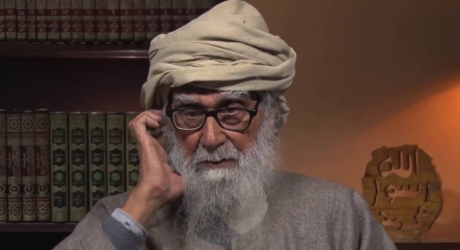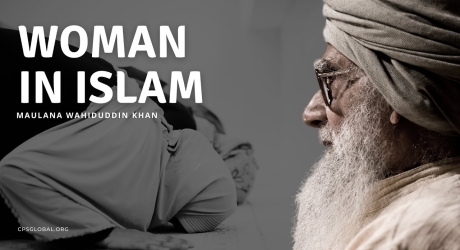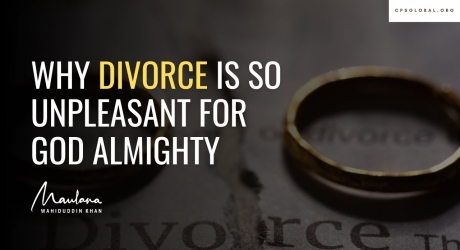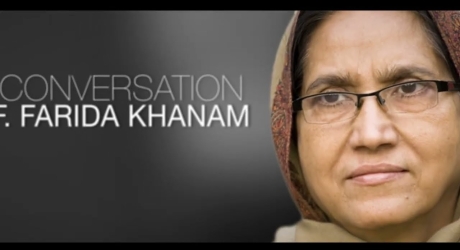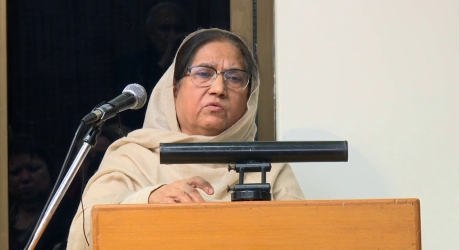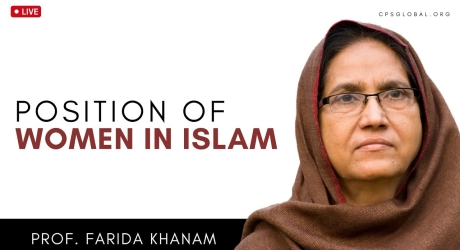In Islam, a woman enjoys the same status as a man. There is no difference between man and woman regarding status, rights and blessings, both in this world and hereafter. Both are considered equal participants in the carrying out the functions of daily living. According to Islamic belief, both men and women are born equal partners in life. In a refined expression of gender equality, the Quran declares: Never will I waste the work of any of you, be they male or female: You are members, one of another… (3:195) We find the exact definition in one of the sayings of the Prophet of Islam (the Hadith): Men and women are two halves of a single unit. (Sunan Abi Dawud, Hadith No. 236) We see that both the sacred scriptures of Islam make it clear that neither sex is inferior or superior to the other. However, studies in biology and psychology show that the sexes are different, each being designed for a different purpose. So, the Islamic maxim for men and women runs as: Equal in respect but different in role.
Introduction
On March 13, 2010, an alim issued a statement that the only role assigned to a woman in Islam was bearing children and raising the next generation. This statement was made in the context of a debate pertaining to reservations for women, which would allow 33 percent reservation for women in government offices.
As I thought about how man entangles himself in trivia, I realized that the present world is full of items to actualise God-realization (marefat), yet man is not able to fathom the greatness of God. It is perhaps only in
“In the name of God, the Most Gracious, the Most Merciful” (1:1)
Man must therefore discover the greatness of God and be imbued with it. The present world allows man to discover the greatness of God at a very basic level but, in the Hereafter, man will be equipped with such senses as will facilitate the discovery of God at a higher intellectual level. This will give man a superlative kind of joy. Material joy cannot be equated to intellectual pleasure: paradise will be a place where man will find a greatly enhanced kind of intellectual pleasure, which shall remain with him forever.
Women’s Status in Islam
This statement reminds me of the content of a book published 150 years ago. Based on selected verses of the Quran, the author of this book suggests that the biggest weakness of Islam is that it does not promote gender equality; in fact it degrades the status of women. This is a common perception. But, in reality, it is a fallacy to think that Islam degrades women; nowhere does either the Quran or the Hadith put such a restriction on woman.
There is a verse in the Quran which describes those who are able to discover God and His greatness in the true sense of the word. When such men and women cry out to God, He replies to their pleading and says,
“I will deny no man or woman among you the reward of their labours. You are members one of another. I will certainly forgive the sins of those who emigrated and were expelled from their homes, who suffered persecution in My cause.” (3: 195)
The latter part of the verse, which describes those to whom God gives help, comes after stating that men and women are members one of another, i.e. they are each other’s counterparts. After stating that men and women are equal, this verse explains that God will pardon those who patiently go through life’s harsh and rough experiences. The latter part of the verse, which describes the kind of life required for receiving God’s help, does not distinguish between man and woman and hence applies to both. It follows that God’s help is for those who develop a particular personality, which, according to the above verse, is the result of experiencing various adverse stages in life. For example, the above verse mentions emigration from
It is obvious that if one does not involve oneself in the struggles of life, one will not develop the personality sought by God. Going by this logic, if women stay indoors, they will never be able to face challenging situations or involve themselves in an external mission and, therefore, this verse will no longer be applicable to them. Therefore, in keeping with the spirit of this verse, both men and women are two equal partners in the joint struggle of life and are together responsible for raising the next generation.
This does not mean that women should do the same work as men, or vice versa. The division of labour is a law of nature. It is irrational to expect that both men and women should do exactly the same job, but opportunities should be open to both. With all the opportunities open to women being within the Shariah limits, there is no implication that society could become permissive.
Examples from the History of Islam
The history of Islam does not begin from
The Prophet Adam and his wife Eve lived to begin with in paradise. They were similar to each other. Both of them committed the same mistake and even received the same punishment. It is remarkable to note that in all the verses relating to them, the wording used (tasnia) pertains to both of them. In other words, both were living in paradise as equal partners.
Hagar, the wife of the Prophet Abraham, lived in the desert
Khadija, the wife of the Prophet Muhammad, had a flourishing export business, which was completely managed by her until her marriage. Moreover, when the Prophet received his first revelation and came back shuddering, she was the one who thought that she must visit Waraqa bin Naufal, a Christian Arab and an alim. Khadija knew that Waraqa bin Naufal would be able to understand the matter and she thus played a crucial role in relieving the Prophet’s extreme tension when he most needed it.
During the Treaty of Hudaybiyya, all the Companions were feeling broken and downcast as they were being forced to agree to the terms of their opponents unilaterally. At this juncture, when none of the Companions could offer advice to the Prophet, he was given advice by his wife Umm-e-Salama. Her capacity to do so implies that she was aware of the world and actively interacted with people or had exposure to life outside the home.. If she had been confined to her house, she could not have offered sound advice. A woman must therefore not be restricted to the confines of her household and must be aware of the developments taking place in the contemporary world, so that, in trying circumstances, she can play a wise role.
Ayesha, the wife of the Prophet Muhammad, is an exemplary figure in the history of Islam. Her young age during her association with the Prophet, proved a boon. After the Prophet Muhammad passed away, she lived on for almost another 50 years and was a living tape recorder of the Prophet and his actions. This was so because there used to be a constant intellectual exchange between the Prophet and Ayesha and her grasp of things made her an asset in later times. Rawait are the sayings of the Prophet of Islam; and in this sense, Abu Hurairah has the number one position. But when it comes to inferences made from the sayings of the Prophet, Ayesha holds the number one position (Istimbad-e-Ayesha). Istimbad , or making inferences, means to read between the lines, which is a very difficult task. Her ability to make inferences from the sayings of the Prophet Muhammad has meant her being considered the greatest alim among the Sahabas. This is not a simple thing. It required a long experiential process during which Ayesha must have stayed away from all luxuries and comforts of the world in order to understand the Prophet Muhammad. She must have completely devoted herself to the understanding of the sayings of the Prophet. A tradition of Ayesha is as follows:
“Whenever the Prophet had to choose between the two, he chose the easier option over the harder option.” (Al-Bukhari)
Such wisdom eluded the understanding of even the wisest minds in human history. No one understood that in every situation there exist two options. If one chooses the violent (harder) option, it aggravates the problem. Choosing the peaceful (easier) option provides an amicable solution to the problem. Even today, people have not grasped this fact. Had the Arabs chosen the easier option of peace in
God’s Scheme
God created man and woman as a pair, so that together, both would do the work that God sought of them. This role was not easy. It required a broad outlook, great intellectual development and profound wisdom. People underestimate the plan of God when they make statements that women must stay confined within the domestic circle. If this were so, women would not experience any intellectual development and God’s plan for both man and woman to be partners in the struggle of life would never come to fruition.
A Hindu sect – the Pranami sect – has a sacred book called Qulzum Sarup, in which it is written:
“The Quran remained a virgin.”
In other words, the truths or teachings of the Quran have been left in their pristine state. According to a Hadith: “The miracles of the Quran will never fade.” (Mishkat). This means that every day a new proof of its veracity is brought forth.
Conclusion
I do not justify social permissiveness. Freedom does have great social value, but it must have its limitations, for unlimited freedom leads to anarchy. The stand I have taken applies to specific roles. So-called enjoyment and a false sense of freedom are futile and flippant -- far beneath human dignity. No allowances can be made for those who will do anything and everything in the name of freedom, because such conduct does not permit their potential to unfold.
God has created man and woman for an important role, which needs their joint struggle. But this has to be done within the realms of certain constraints. The greatest wisdom therefore is to make a clear distinction between enjoyment and permissiveness (desire-based), while fulfilling the responsibilities ordained by the creation plan of God -- the role assigned to us in this world.
Unfortunately, all men and women, not having lived up to the Creation plan of God, die in despair without ever having experienced the unfolding of the immense potential that God created them with. A philosopher once said: “Every time a child is born, it is indicative of the fact that God is still hopeful of man.” This is because every man is a Mr. Hope.
Women have a great role to play in reviving the prophetic mission in today’s times. At CPS too, women have a great responsibility to discharge. Our mission is to repeat that history in which women accomplished great feats.
May God guide us!





